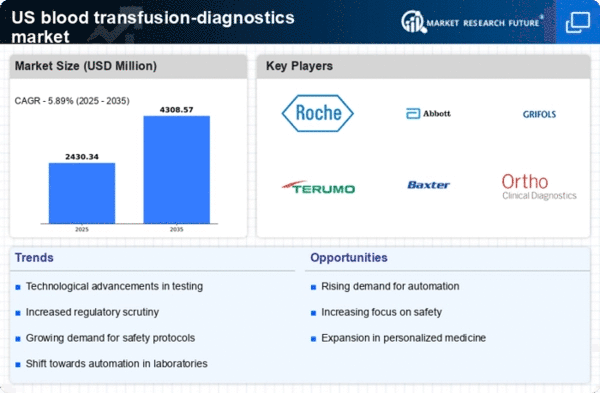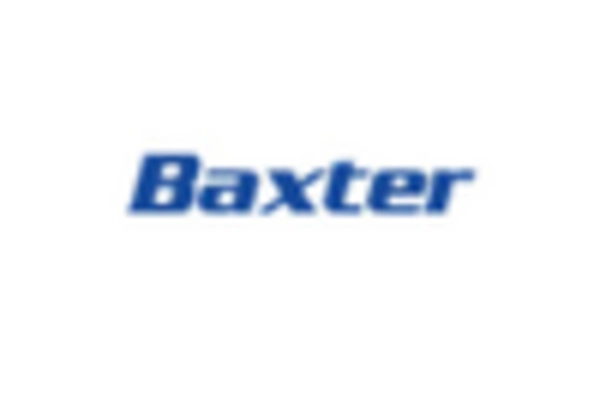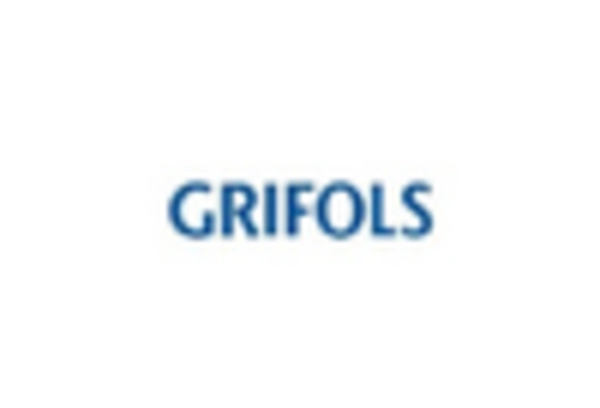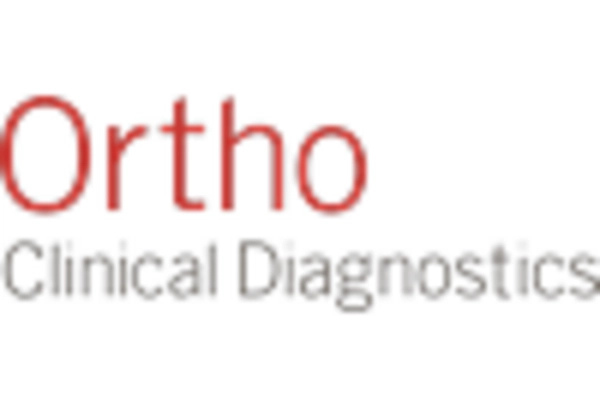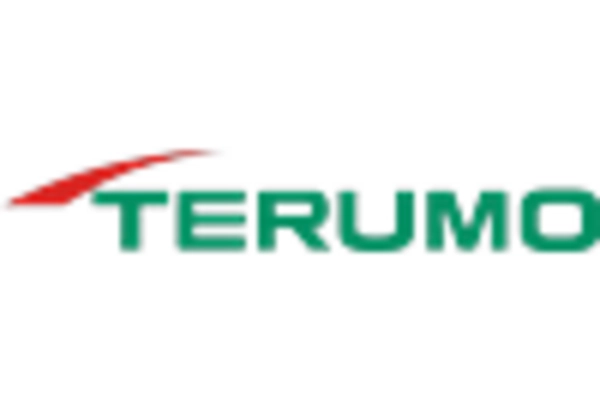Growing Awareness of Blood Safety
There is a heightened awareness regarding blood safety and the risks associated with transfusions, which significantly impacts the blood transfusion-diagnostics market. Educational campaigns and initiatives by health organizations emphasize the importance of rigorous testing and screening of blood products. This awareness drives healthcare providers to adopt more comprehensive diagnostic measures to ensure the safety of transfusions. As a result, the market is expected to see an increase in demand for diagnostic tools that can detect infectious diseases and other potential risks in blood products, thereby enhancing patient safety and trust in transfusion practices.
Rising Prevalence of Blood Disorders
The increasing incidence of blood disorders such as anemia, hemophilia, and thalassemia is a crucial driver for the blood transfusion-diagnostics market. As more individuals are diagnosed with these conditions, the demand for accurate diagnostic tools and blood products rises. According to recent data, approximately 3 million Americans are affected by anemia alone, necessitating regular blood transfusions and monitoring. This trend indicates a growing need for advanced diagnostic solutions that can ensure safe and effective blood transfusions. The blood transfusion-diagnostics market is likely to expand. This expansion is due to healthcare providers seeking to improve patient outcomes through better diagnostic capabilities.
Regulatory Changes and Quality Standards
Regulatory changes and the establishment of stringent quality standards are shaping the blood transfusion-diagnostics market. Agencies such as the FDA enforce regulations that require rigorous testing and validation of blood products and diagnostic tools. Compliance with these regulations is essential for manufacturers and healthcare providers, as it ensures the safety and efficacy of blood transfusions. The ongoing evolution of these regulations may lead to increased investments in research and development of new diagnostic technologies. Consequently, the blood transfusion-diagnostics market is likely to experience growth as stakeholders adapt to these regulatory demands and strive to meet high-quality standards.
Technological Innovations in Diagnostics
Technological advancements in diagnostic tools are transforming the blood transfusion-diagnostics market. Innovations such as automated blood typing systems, molecular diagnostics, and point-of-care testing devices enhance the accuracy and speed of blood testing. For instance, the introduction of next-generation sequencing technologies allows for more precise identification of blood group antigens, which is critical for safe transfusions. The market is projected to grow as these technologies become more integrated into clinical practice, potentially increasing efficiency and reducing the risk of transfusion-related complications. As a result, healthcare facilities are likely to invest in these advanced diagnostic solutions.
Aging Population and Increased Surgical Procedures
The aging population in the United States is contributing to a higher demand for surgical procedures, which in turn drives the blood transfusion-diagnostics market. Older adults are more likely to undergo surgeries that require blood transfusions, such as orthopedic and cardiac procedures. As the population aged 65 and older continues to grow, the need for effective blood management and diagnostic solutions becomes increasingly critical. This demographic shift suggests that healthcare systems will need to enhance their blood transfusion protocols and diagnostic capabilities to accommodate the rising number of surgical interventions, thereby expanding the market.


